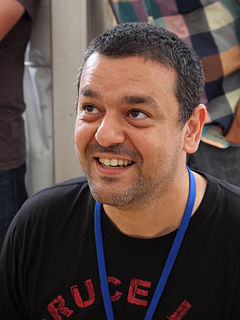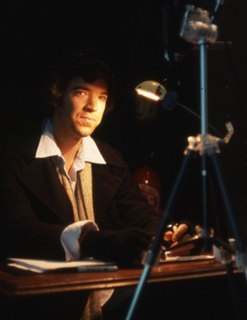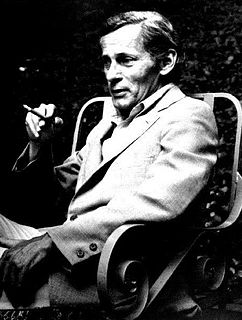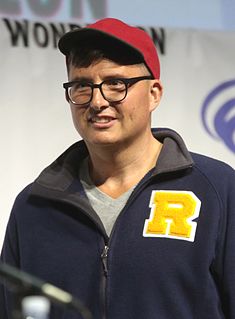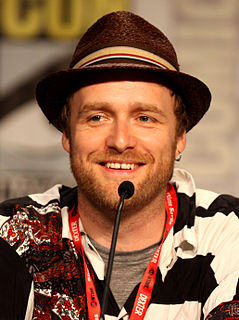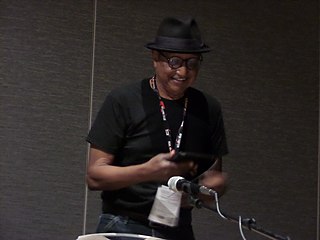A Quote by Iris Murdoch
Almost any tale of our doings is comic. We are bottomlessly comic to each other. Even the most adored and beloved person is comic to his lover. The novel is a comic form. Language is a comic form, and makes jokes in its sleep. God, if He existed, would laugh at His creation. Yet it is also the case that life is horrible, without metaphysical sense, wrecked by chance, pain and the close prospect of death. Out of this is born irony, our dangerous and necessary tool.
Quote Topics
Adored
Almost
Also
Any
Beloved
Beloved Person
Born
Case
Chance
Close
Comic
Creation
Dangerous
Death
Doings
Each
Even
Existed
Form
God
His
His Love
Horrible
Irony
Jokes
Language
Laugh
Life
Life Is
Lover
Makes
Metaphysical
Most
Necessary
Novel
Other
Our
Out
Pain
Person
Prospect
Sense
Sleep
Tale
Tool
Without
Would
Wrecked
Related Quotes
Preparing the animation is close to the comic book process but there are plenty of problems. It's very interesting, but it's also sometimes a pain in the arse, especially because it's so very long. Something that takes 10 minutes in comic book form can take 10 months in film form. But I love the results.
Even in a gleefully negative comic, there is optimism, although it's slightly hidden: It comes out through a comic character's sheer tenacity. He keeps going and trying to find some sort of fulfillment regardless of his perpetual failure record. That's a form of hope, a form of optimism. Really hokey I know, but it's true.
Comic books sort of follow with the move - if people see the movie and if they're interested in the character and want to see more of the character, they start buying the comic books. So a good movie helps the sale of the comic books and the comic books help the movie and one hand washes the other. So, I don't think there's any reason to think that comics will die out.
I think the novel is essentially a comic form (tragedy is for the theatre), not meaning by that full of jokes, but that it is about the absurd detail of human life, the way in which one cannot fully understand what is happening. Life is muddle and jumble and ends inconclusively, and when this is presented with great comic art the sorrows of human life can be truthfully conveyed; one is moved by the spectacle, and feels that something truthful has been told in a magic way.
I think the reason I choose the comic approach so often is because it's harder, therefore affording me the opportunity to show off. Also, a comic vision is my natural world view, but I've grown up in spite of myself and I can pass the comic twist if it detracts from what the characters need. Yes, the life of a saint is hard.


